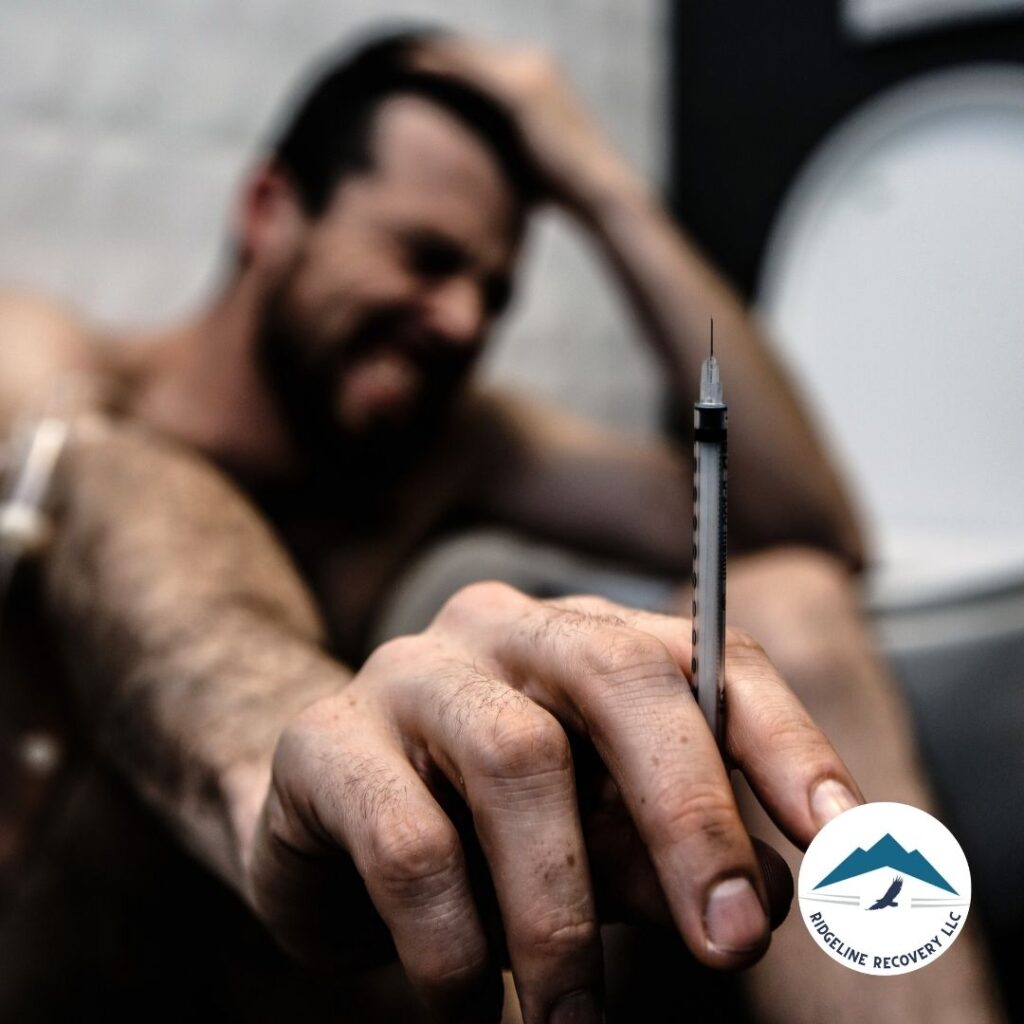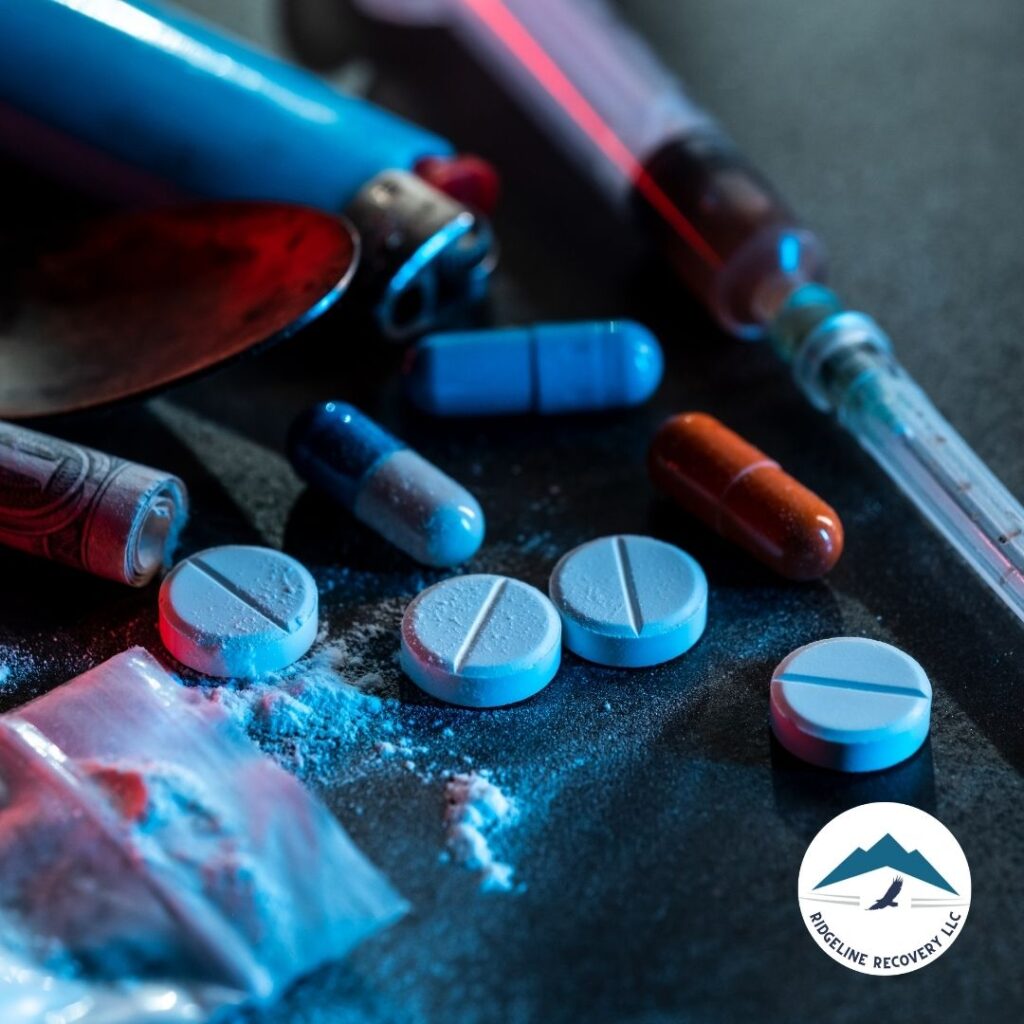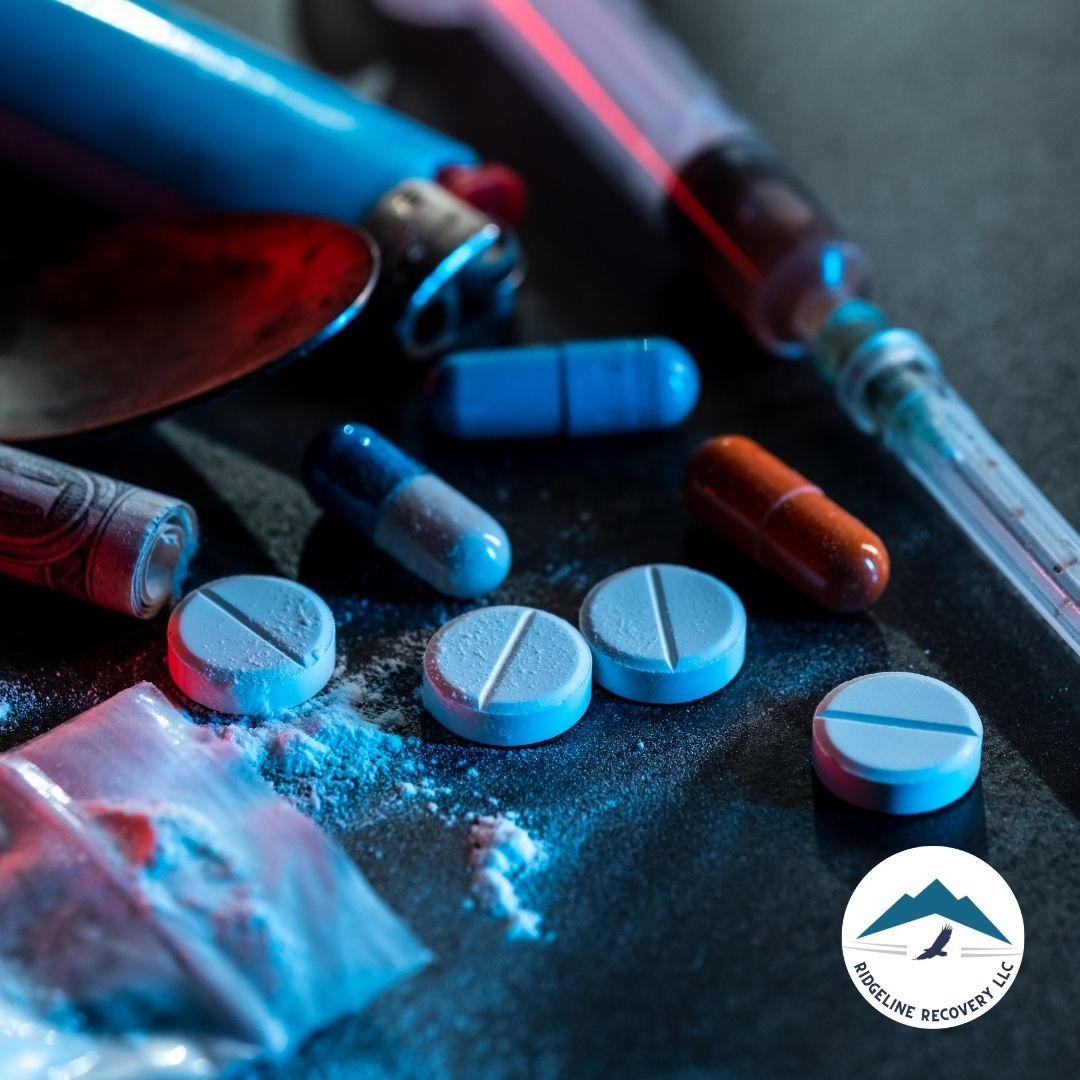Let’s cut to the chase. If you’re here, you’re either dealing with addiction yourself or you’re worried about someone who is. You’re probably typing “Addiction Treatment Columbus” into Google, hoping for answers, guidance, and maybe a little bit of hope. Let me tell you, you’re in the right place.
You’re not just looking for any solution; you’re looking for the best. You want something that works, something that sticks. You’re searching for addiction therapy near me, addiction recovery near me, and maybe even vivitrol clinics near me. You’re asking big questions, and you deserve clear, honest answers. So, let’s break it down.
Choosing the Right Addiction Treatment Columbus Offers
What Does “Addiction Treatment Columbus” Really Mean?
When we talk about “Addiction Treatment Columbus,” we’re not just talking about a one-size-fits-all approach. We’re talking about a tailored, comprehensive system designed to meet the diverse needs of individuals battling addiction in Columbus, Ohio.
Breaking Down Options in Columbus
There are several options when it comes to addiction treatment in Columbus. Here’s what you need to know:
Inpatient vs. Outpatient
Inpatient Treatment: This is where you live at the facility for a period, typically ranging from 30 to 90 days. It’s immersive and intensive.
Outpatient Treatment: You live at home but attend treatment sessions at the facility. It’s flexible, fitting into your daily life.
Medication-Assisted Treatment (MAT)
MAT involves using medications like Vivitrol alongside counseling and behavioral therapies. It’s proven to help with addiction recovery.
Key Facilities in Addiction Treatment Columbus
Columbus has some top-notch facilities. You’ll find centers like Ridgeline Recovery LLC that offer a range of services from inpatient detox to outpatient therapy. They provide mental health services near me, mental health therapist near me, and other crucial support systems.
Why Therapy is Essential to Addiction Recovery Columbus
Therapy isn’t just a part of addiction treatment—it’s the backbone. It’s where the real work happens. Let’s dig into why therapy is a game-changer.
- Understanding the Root Causes
Addiction isn’t just about the substance. It’s about the underlying issues—trauma, mental health disorders, stress. Therapy helps uncover and address these root causes.
- Developing Coping Strategies
Life doesn’t stop because you’re in recovery. Therapy equips you with tools and strategies to handle life’s challenges without turning back to substances.
- Building a Support System
Addiction is isolating. Therapy helps rebuild connections with loved ones and create a network of support.
Types of Therapy in Addiction Treatment Columbus
Different people, different needs. Here are some key types of therapy you’ll encounter in addiction treatment Columbus Ohio.
1. Cognitive Behavioral Therapy (CBT)
CBT is all about changing negative thought patterns that lead to destructive behaviors.
- Impact on Thought Patterns
- Helps you recognize and challenge harmful thoughts.
- Teaches you to replace them with positive, constructive ones.
2. Dialectical Behavior Therapy (DBT)
DBT combines CBT with mindfulness techniques. It’s especially effective for those with severe emotional dysregulation.
3. Family Therapy: Bringing Loved Ones into Your Recovery
Addiction doesn’t just affect you—it impacts everyone around you. Family therapy involves your loved ones in the recovery process.
- How it works with addiction therapy services
- Improves communication and resolves conflicts.
- Strengthens the support system around you.
Common Fears About Starting Therapy
Let’s address the elephant in the room—fear. Starting therapy can be scary. Here are some common fears and why you shouldn’t let them stop you.
1. Fear of Failure
“What if it doesn’t work for me?”
Addiction recovery isn’t a straight line. It’s a journey with ups and downs. Therapy gives you the tools to navigate this journey.
2. Fear of Judgment
“I don’t want to be judged.”
Therapists are trained professionals. Their job is to help, not judge. They provide a safe, confidential space for you to heal.
3. Fear of Change
“Change is hard.”
Yes, it is. But staying the same is harder. Therapy helps you manage and embrace change in a healthy way.
The Power of Community Support in Columbus
You can’t do this alone. Community support is crucial. Here’s how Columbus provides a strong support network.
1. 12-Step Programs
Programs like Alcoholics Anonymous (AA) and Narcotics Anonymous (NA) provide structured, supportive environments for recovery.
2. Sober Living Homes and Half-Way Homes in Columbus
These homes offer a safe, supportive environment where you can live substance-free and transition back into everyday life.
Life After Addiction Treatment Columbus: Building a New Path
Recovery isn’t just about getting sober—it’s about building a whole new life.
Adjusting to Life Post-Treatment in Columbus
After completing addiction treatment Columbus, adjusting back to daily life can be challenging. Here’s what to expect:
- Facing Triggers in Everyday Environments
- Recognizing your triggers and learning to manage them.
- Applying Tools from Therapy
- Using techniques from addiction therapy services and relapse prevention methods.
- Rebuilding Relationships
- Reconnecting with family, friends, and loved ones in healthy ways.
Setting Up a Solid Aftercare Plan
Why is aftercare so important? It’s the bridge between treatment and lifelong recovery.
- Participate in Outpatient Therapy
- Continuing with addiction therapy allows you to stay accountable.
- Find Local Support Networks
- Columbus offers a variety of sober living house near me options and support groups.
- Stay Connected with Your Mental Health Team
- Working with mental health clinics near me and your therapist will keep you on track.
Understanding the Impact of Dual Diagnosis in Addiction Treatment Columbus

Dual diagnosis is when someone has both a mental health disorder and a substance use disorder.
Why Dual Diagnosis is Critical for Recovery
- Mental Health and Addiction Are Linked
- Disorders like depression, anxiety, and PTSD can worsen addiction.
- Treatment Must Address Both
- Focusing solely on addiction without mental health treatment can lead to relapse.
Finding a Dual Diagnosis Center in Columbus
Look for centers that specialize in mental health services near me alongside addiction care.
- Holistic Approaches to Dual Diagnosis
- Combining mental health services with addiction support
- Ensuring your care plan includes all aspects of your health
How to Identify a Quality Addiction Treatment Columbus Center
Characteristics of Top Addiction Recovery Centers
Not all centers are created equal. Here’s what to look for:
- Accreditation and Licensing
- Only work with licensed facilities that meet national standards.
- Individualized Treatment Plans
- You want a center that tailors your recovery to you.
- Comprehensive Therapy Options
- A good center offers everything from CBT to family therapy to 12-step support.
Questions to Ask Potential Treatment Centers
Before deciding, ask these questions:
- What types of therapy are available?
- Are there options for long-term addiction treatment?
- Do you have staff who specialize in dual diagnosis?
Exploring Medication-Assisted Treatment (MAT) Options in Columbus
For some, medications are essential to overcoming addiction. In Columbus, MAT options include Vivitrol, Suboxone, and Methadone.
The Benefits of MAT in Addiction Treatment Columbus
- Reduces Cravings and Withdrawal Symptoms
- Increases Success Rates for Long-Term Sobriety
- Provides Safety During the Recovery Process
Finding the Right MAT Clinic for You
MAT isn’t for everyone, so it’s important to find vivitrol clinics near me that specialize in addiction therapy.
Developing Healthy Habits and Routines in Recovery
Once you complete addiction treatment Columbus, building new habits is crucial.
Why New Routines Matter
Addiction often leads to destructive routines. Replacing them with healthy ones will help sustain recovery.
- Exercise and Physical Health
- Nutrition and Healthy Eating
- Journaling and Mindfulness Practices
Finding Community Support in Columbus
- 12-Step Programs and Support Groups
- Sober Living Houses
- Staying engaged with community and accountability partners
Alternative Therapies in Addiction Treatment Columbus
Alongside traditional therapies, Columbus offers alternative methods to support recovery.
Exploring Alternative Treatment Options
- Mindfulness-Based Therapy
- Art and Music Therapy
- Yoga and Meditation
How Alternative Therapies Can Support Long-Term Recovery
These therapies offer additional tools for managing stress, anxiety, and emotions without turning to substances.
The Importance of Family Support in Addiction Recovery
Addiction impacts families just as much as it affects the individual. Family support can make a huge difference.
How Family Therapy Works in Addiction Treatment
Family therapy brings loved ones together to improve understanding and communication.
- Addressing Family Dynamics
- Understanding patterns and breaking down resentment.
- Creating a Strong Support Network
- Family members learn how to offer healthy, non-enabling support.
Tips for Family Members Supporting a Loved One
- Educate Yourself on Addiction
- Set Boundaries and Practice Self-Care
- Stay Involved in Recovery Activities
Common Myths About Addiction Treatment in Columbus
There are a lot of misconceptions about addiction treatment. Here’s what’s true and what’s not.
Debunking Myths About Therapy and Recovery
- Myth: Recovery is a Quick Fix
- Myth: Medication is Just a Crutch
- Myth: Addiction is Just About Willpower
Why Evidence-Based Treatment Works
Evidence-based treatment uses scientifically proven methods that increase the chances of long-term recovery.
Stories of Transformation: Real Experiences in Columbus Recovery
Stories are powerful—they remind us that recovery is possible.
- Finding Hope After Years of Addiction
- Building a New Life One Step at a Time
- Embracing Therapy and Growing Stronger
Why Every Journey is Unique
Every recovery journey is different. What works for one person may not work for another, which is why individualized treatment is essential.
Choosing the Right Sober Living House in Columbus
A sober living house can be the stepping stone from rehab to the real world.
Benefits of Sober Living
- Structured Environment
- Accountability and Support
- Smooth Transition to Independence
Finding Sober Living Houses Near Me
Look for a reputable sober living house near me in Columbus to ensure a safe, supportive environment during this crucial phase of recovery.
What the Twelve Steps in the Twelve Step Program Teach
The 12-Step Program is widely recognized as a powerful support system in recovery.
Key Takeaways from the Twelve Steps
- Acknowledging Powerlessness Over Addiction
- Accepting Responsibility
- Building a Supportive Community
Applying the Twelve Steps to Daily Life
The 12 Steps are more than just words—they’re actions that promote lifelong growth and sobriety.
Why Relapse Isn’t the End: Recovery is a Process
Relapse is common, but it doesn’t mean failure.
Understanding the Stages of Relapse
- Emotional Relapse
- Mental Relapse
- Physical Relapse
Tools for Preventing Relapse
- Recognizing Warning Signs
- Staying Connected with a Support System
- Practicing Self-Care and Mindfulness
Exploring Different Types of Addiction Therapy
Not every type of therapy works the same for everyone. Columbus offers a wide range of addiction therapy services designed to help people on their terms.
Cognitive Behavioral Therapy (CBT)
One of the most effective tools in addiction treatment Columbus is Cognitive Behavioral Therapy, or CBT. This method:
- Helps Identify Negative Thought Patterns
- CBT allows patients to uncover harmful thinking that fuels addiction.
- Builds Healthy Coping Mechanisms
- Developing strategies for dealing with stress and cravings.
- Creates Lasting Behavioral Change
- Breaking cycles that have supported addiction for years.
Dialectical Behavior Therapy (DBT)
Originally designed for people with intense emotions, DBT has gained traction in addiction recovery:
- Teaches Emotional Regulation
- Reduces Impulsivity
- Focuses on Mindfulness and Acceptance
Acceptance and Commitment Therapy (ACT)
ACT encourages patients to accept their feelings rather than avoid them, which can be transformative for people struggling with addiction.
- Focuses on Values and Purpose
- Helps Individuals Accept and Move Past Negative Feelings
- Empowers Patients to Live a Purpose-Driven Life
The Role of Family in Addiction Treatment Columbus
Family involvement is often a game-changer in recovery. Addiction impacts everyone in a family unit, not just the individual battling it.
Why Family Therapy Matters in Recovery
- Restores Trust and Communication
- Strengthens the Support Network
- Teaches Healthy Boundaries and Self-Care
Involving Families in Relapse Prevention
Many addiction treatment Columbus centers focus on equipping family members with tools to recognize relapse signs, which can be invaluable in maintaining sobriety.
Holistic Approaches in Addiction Treatment Columbus
Some people find traditional therapy alone isn’t enough. That’s where holistic treatments come in.
Examples of Holistic Therapies
- Yoga and Meditation
- Practicing mindfulness and relaxation to ease anxiety and help with emotional regulation.
- Art and Music Therapy
- Allowing individuals to express themselves through creativity, which can be incredibly therapeutic.
- Nature-Based Therapy
- Connecting with the outdoors, like hiking in the Appalachian Mountains Ohio, can help people feel grounded and at peace.
How Holistic Therapies Complement Traditional Treatment
Integrating holistic treatments can make recovery more well-rounded, addressing both the body and mind.
Medication-Assisted Treatment (MAT) Options in Columbus
MAT has proven to be an effective supplement to therapy in treating addiction. Vivitrol clinics near me and other MAT programs are readily available in Columbus to support those needing this resource.
Common Medications Used in MAT
- Vivitrol
- Blocks the euphoric effects of substances like alcohol and opioids, making relapse less tempting.
- Suboxone and Methadone
- These medications reduce cravings and help people get through the day without withdrawal symptoms.
- Naltrexone
- Used primarily for alcohol use disorder but can help with opioids as well.
MAT Isn’t for Everyone—Finding the Right Fit
Some people thrive with MAT, while others prefer to recover without it. Many addiction treatment centers Columbus Ohio will guide you in choosing the right path for your needs.
Inpatient vs. Outpatient: Which is Right for You?
Making the right choice between inpatient and outpatient treatment can determine the success of your recovery.
The Benefits of Inpatient Rehab
For those needing constant support and supervision, inpatient treatment may be the best option:
- Structured Environment
- 24/7 Medical Support
- Fewer Distractions from Outside Life
How Outpatient Programs Work
Outpatient programs offer flexibility for individuals who need to balance treatment with daily responsibilities.
- Allows You to Stay at Home
- Offers Therapy on a Flexible Schedule
- Ideal for Mild to Moderate Addiction Cases
Columbus’s Community Resources for Addiction Recovery
Recovery is a lifelong journey, and Columbus has an array of community resources to help.
Sober Living Houses Near Me
If you’re not ready to return to your old environment, sober living houses near me offer a supportive place to transition:
- Provides Accountability
- Supports Independent Living
- Creates a Safe Environment
Support Groups and 12-Step Programs
Groups like AA and NA are easily accessible and can be critical for staying connected with a recovery-minded community.
- AA Third Step: Understanding Its Role
- The third step of AA is surrendering to a higher power, which can bring peace.
- Benefits of Fellowshipping
- Spending time with others in recovery helps you realize you’re not alone.
Finding Balance: Managing Mental Health in Recovery
Mental health challenges often accompany addiction. Mental health therapist near me options can be crucial in providing long-term support for these issues.
Why Mental Health Support is Key
- Addiction Often Stems from Mental Health Struggles
- Maintaining Mental Health is Vital for Long-Term Sobriety
- Therapy Offers Coping Skills for Both Addiction and Mental Health Challenges
What to Expect from Mental Health Clinics Near Me
Mental health clinics provide individualized care, focusing on therapy, medication management, and lifestyle changes.
Addressing Co-Occurring Disorders in Addiction Treatment Columbus

Many people entering treatment struggle with dual diagnosis—both addiction and mental health disorders.
Common Co-Occurring Disorders
- Anxiety and Depression
- PTSD
- Bipolar Disorder
How Dual Diagnosis Treatment Works
Dual diagnosis treatment integrates mental health and addiction services, ensuring both issues are treated concurrently.
Exploring Different Levels of Care in Addiction Treatment Columbus
Not all addiction cases require the same level of care. Columbus provides various options based on individual needs.
Types of Care Available in Columbus
- Detox Programs
- Medical supervision to safely withdraw from drugs or alcohol.
- Residential Treatment
- A step down from inpatient, offering structured support while encouraging independence.
- Partial Hospitalization Programs (PHPs)
- Intensive therapy during the day, allowing people to return home at night.
The Long-Term Impact of Alcohol and Drug Addiction
Addiction doesn’t just impact the present. The long-term impact of alcohol or drugs can linger for years.
Physical Consequences
- Liver Damage from Alcohol
- Chronic drinking leads to liver disease, which can be life-threatening.
- Brain Changes Due to Drug Use
- Substances like opioids and meth can alter brain chemistry permanently.
Mental and Emotional Consequences
Addiction takes a toll on emotional well-being, often causing:
- Increased Anxiety and Depression
- Relationship Issues
- Feelings of Isolation
Nutrition and Physical Health in Recovery
Maintaining your body’s health is a big part of recovery. Nutrition and exercise are often underestimated but essential to a sustainable recovery.
Foods That Detox the Body
- Leafy Greens and Antioxidant-Rich Fruits
- Water and Herbal Teas
- Probiotics for Gut Health
Benefits of Physical Activity in Sobriety
Exercise releases endorphins, helps manage stress, and boosts self-esteem.
Creating a Personal Relapse Prevention Plan
Relapse prevention isn’t just a program—it’s a daily commitment to maintaining your sobriety.
Core Components of a Relapse Prevention Plan
- Recognize Personal Triggers
- Knowing what sets you off is critical.
- Establish a Strong Support Network
- Having people to turn to during tough times is essential.
- Build a Routine
- Structure provides stability in a life that previously lacked it.
Why Relapse is a Learning Opportunity
Relapse doesn’t mean failure. Instead, it’s a signal to re-evaluate and adjust your strategy.
The Importance of Self-Care in Recovery
Taking care of yourself goes beyond therapy and medication.
Ways to Prioritize Self-Care
- Set Boundaries with Others
- Create a Healthy Sleep Routine
- Find Hobbies and Passions
Self-care strengthens recovery by helping you find purpose and joy in life beyond addiction.
Community-Based Support in Columbus
Having a strong community is often what sustains long-term recovery. Columbus offers several community-based resources for those in recovery.
Popular Recovery Resources in Columbus
- Addiction Recovery Centers
- Outreach Programs and Volunteering Opportunities
- Job Placement Programs for People in Recovery
FAQ Section on Addiction Therapy and Recovery in Columbus
Can You Quit Alcohol Cold Turkey?
Quitting alcohol abruptly can be dangerous, especially for heavy drinkers. It’s best to detox under medical supervision.
What Are the Effects of Mixing Alcohol and Ambien?
Mixing these substances can be extremely dangerous, leading to severe sedation, respiratory issues, and even death.
Is Gabapentin a Controlled Substance?
Gabapentin isn’t classified as a controlled substance federally, but it’s still subject to abuse. Some states have additional regulations.
How Long is Rehab?
The length of rehab varies. Inpatient programs typically last 30 to 90 days, but some people may need longer.
What Are Sober Living Houses?
Sober living houses provide a structured, substance-free environment for those transitioning from rehab back to normal life.
What is Pink Clouding in Recovery?
Pink clouding is a term used to describe a temporary phase of euphoria or overly positive emotions early in sobriety.
How Do I Know if I Need Inpatient Rehab?
If you have severe withdrawal symptoms or need intensive support, inpatient rehab may be the best choice.
What is Precipitated Withdrawal?
Precipitated withdrawal happens when medications like Naloxone cause a sudden onset of withdrawal symptoms. It’s why detoxing under medical supervision is key.
Navigating the Detox Process: What to Expect
Detox is the first step in addiction treatment. Here’s what you need to know.
1. Medical Supervision and Withdrawal Management
Detoxing under medical supervision ensures your safety and comfort.
2. Use of Medications to Ease Symptoms
Medications like Vivitrol can help manage withdrawal symptoms and reduce cravings.
3. Timeline and Stages of Detox
Detox timelines vary depending on the substance and individual. It can take from a few days to several weeks.
Moving Forward with Addiction Treatment Columbus Resources
Recovery is a journey, not a destination. Here’s how you can move forward.
1. Ask Questions
Don’t be afraid to ask questions. Understanding your treatment options is crucial.
2. Look for Licensed Professionals
Ensure you’re working with qualified, licensed professionals.
3. Explore Aftercare Options
Recovery doesn’t end when you leave the treatment center. Aftercare is essential for long-term success.
Final Takeaways
Choosing the right addiction treatment Columbus offers can be life-changing. Whether you’re looking for addiction therapy near me, mental health services near me, or specific treatments like Vivitrol clinics near me, the right support is out there.
Recovery is possible. It’s a journey worth taking. And with the right resources, you can build a healthier, more fulfilling life.
Final Thoughts on Addiction Treatment Columbus
Addiction recovery isn’t a one-time decision. It’s a lifelong commitment to better health, peace, and purpose.
Whether you’re considering addiction treatment Columbus for yourself or a loved one, remember this: recovery is possible, and you don’t have to do it alone.
The journey may be long, but every step forward is progress. With the right support, the right resources, and the determination to change, a better life is within reach.
Call Us Now!
If you or a loved one is struggling with heroin or alcohol dependency, reach out to Ridgeline Recovery Center in Columbus, Ohio, today. At Ridgeline Recovery, we offer a path to hope and healing. Our comprehensive Addiction Recovery services include Addiction Therapy, Addiction Treatment, Vivitrol Clinic and specialized Mental Health Services designed to support your journey to recovery.
We provide Aftercare Programs and Peer Support to ensure you have ongoing assistance after treatment. Our dedicated team offers Case Management and Child Services for those needing extra support. For individuals who prefer a faith-based approach, we offer Faith-Based Recovery options.
Our programs feature Group and Individual Counseling, along with Medication-Assisted Treatment (MAT) to address your unique needs. We also have an Intensive Outpatient Program (IOP) and a Partial Hospitalization Program (PHP) for more structured care.
Our team includes Registered Nurse Services, Psychiatric Services, and Therapeutic Behavioral Services (TBS) to provide comprehensive support throughout your recovery process. We work with various Insurance Coverage plans to help you access the care you need.
Don’t wait—contact us now to start your journey toward a brighter future with Ridgeline Recovery.
For more stories and information Contact Us, visit our Blog page and Stories & Highlights.







